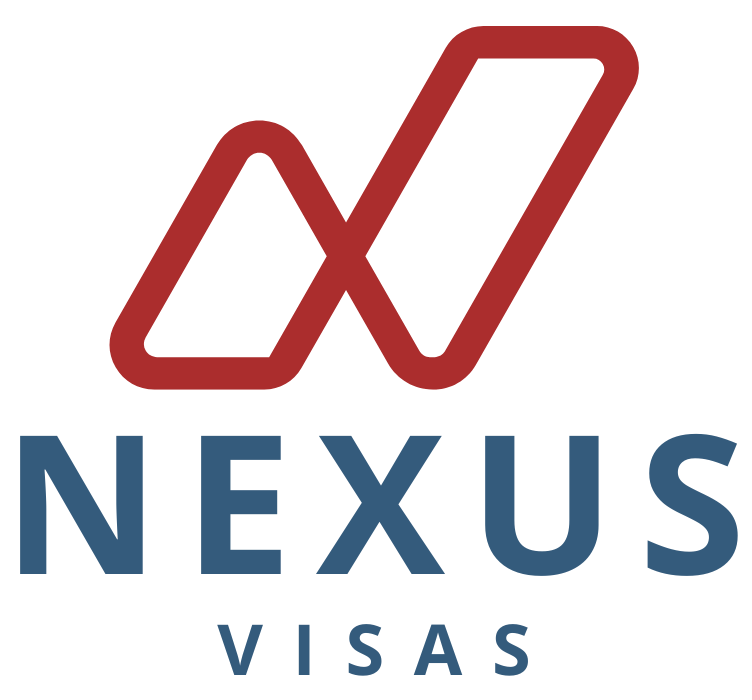
Sponsor licence & skilled worker remote work: home office immigration guidance
Understanding the sponsor licence requirements is essential for UK employers who wish to sponsor a worker under the skilled worker route. As a sponsor licence holder, it is crucial to comply with sponsor duties, especially when considering overseas workers who may work remotely or work from home. The home office may provide guidance for sponsor licence holders regarding remote and hybrid work arrangements for migrant workers. If your sponsorship licence is granted, you can manage your sponsor management system effectively for workers and temporary workers.
Employers should be aware that sponsored workers’ ability to work in the UK while working at a different location must align with immigration law. If a worker sponsor intends to work entirely remotely, they must ensure that the sponsor licence fee is paid and that all regular working conditions are met. Failure to do so may result in the revoke your sponsor licence process. Additionally, it’s important to apply for a licence that reflects the nature of fully remote positions, ensuring compliance with all relevant sponsor guidance.
What is a sponsor licence and why is it important?
A sponsor licence is a crucial authorization that allows UK employers to sponsor a worker from overseas to work in the UK. This is especially important in the context of immigration law, as it enables businesses to recruit migrant workers for roles that may not be filled by local talent. By holding a sponsor licence, employers can navigate the skilled worker route or hire temporary workers to fulfill their staffing needs, whether working at a different location or remotely from home.
To apply for a licence, organizations must demonstrate compliance with sponsor guidance and pay the sponsor licence fee. Once a sponsor licence is granted, the organization must use the sponsor management system to manage the workers’ immigration status and ensure they comply with sponsor duties. Failure to do so may result in the Home Office revoking your sponsor licence, which would hinder the ability to hire overseas workers. Thus, maintaining a valid sponsor licence is essential for businesses looking to work entirely remotely or in a remote and hybrid model.
To effectively manage sponsored worker’s employment, guidance for sponsor licence holders is available, helping employers understand their responsibilities. By leveraging this framework, organizations can successfully work remotely in a remote and hybrid model, ensuring that workers work seamlessly from home or another location while maintaining the integrity of their sponsor licence. Ultimately, the ability to hold a sponsor licence is vital for businesses looking to thrive in a global labor market.
Understanding the sponsor licence process
Understanding the sponsor licence process is crucial for businesses that wish to employ foreign workers. The first step involves assessing the eligibility criteria set by the Home Office, which requires companies to demonstrate their operational stability and compliance with UK laws. Next, organizations must complete the sponsor licence application, providing necessary documentation and paying the relevant fees. Once submitted, the Home Office will conduct checks and potentially an inspection. If successful, the business will receive a sponsor licence, allowing them to issue Certificates of Sponsorship to foreign employees.
Importance of sponsor duties in the UK immigration system
Sponsor duties play a crucial role in the UK immigration system, ensuring that individuals granted visas adhere to the terms of their stay. These responsibilities include providing accommodation and financial support, which are vital for maintaining the well-being of the sponsored individual. Failure to fulfill these duties can result in significant consequences, both for the sponsor and the visa holder, including potential deportation. Furthermore, sponsors are required to report any changes in circumstances, fostering transparency and accountability within the immigration framework. Ultimately, fulfilling sponsor duties contributes to the integrity of the immigration process.
How does remote work affect sponsorship duties?
As more workers work remotely, organizations need to adapt their sponsor obligations. When a company needs to sponsor the worker, they must ensure compliance with licence reporting and recording duties to avoid loss of a sponsor licence. This includes making sure that any sponsored worker occasionally works from a different location does not violate the terms of their sponsorship.
With the rise of hybrid or remote working, it is crucial for employers to report to the home office any changes in regular working patterns. Failure to do so could lead to the licence being suspended. The appendix d of the sponsor guidance has been updated, providing clarity on sponsoring an offshore worker and the responsibilities that come with applying for a sponsor licence.
Employers must also consider using a sponsor licence management service to facilitate compliance with sponsor licence reporting and recording. This service can help ensure that all necessary information is accurately tracked and reported, ultimately safeguarding the company’s ability to sponsor skilled talent in a changing work environment.
Complying with your sponsor duties for remote workers
Complying with your sponsor duties for remote workers is crucial for maintaining a productive and compliant work environment. First, ensure that you provide the necessary resources and support for remote employees to perform their tasks efficiently. Regular communication is essential; schedule frequent check-ins to discuss progress and address any challenges. Additionally, familiarize yourself with the regulations related to remote work in your region, as these can impact both the employer and employee responsibilities. Lastly, prioritize employee well-being by promoting a healthy work-life balance and encouraging time off when needed.
Guidance for sponsors regarding hybrid working patterns
In today’s evolving workplace, sponsors should recognize the importance of hybrid working patterns to foster employee engagement and productivity. To effectively implement these models, it is crucial to establish clear communication channels that facilitate collaboration between remote and in-office team members. Additionally, sponsors should offer flexible schedules that accommodate individual circumstances, ensuring a balance between work and personal life. Finally, providing access to technology and resources that support seamless transitions between home and office environments will empower employees to thrive in a hybrid setting, ultimately enhancing overall organizational performance.
What are the immigration rules for skilled worker visa holders?
Under the latest home office guidance, a worker must demonstrate their ability to comply with sponsor requirements to secure a skilled worker visa. This includes ensuring that workers in the UK possess the necessary qualifications and skills for their roles. When making an application for a licence, sponsors need to provide documents for each worker they intend to employ, confirming their eligibility.
If a worker will work remotely or in a hybrid arrangement, the sponsor licence to enable such working conditions must be explicitly stated. Sponsors should refer to the temporary workers guidance for sponsors for any specific considerations regarding working for sponsored workers. Failing to adhere to these requirements may result in the risk of a sponsor licence being revoked.
Additionally, workers guidance for sponsors part outlines the obligations of sponsors to ensure that each worker to undertake their role effectively while complying with the Home Office’s regulations. It is essential that sponsors maintain accurate records and utilize the sponsor management system to monitor compliance and facilitate inquiries.
Eligibility criteria for skilled worker visa holders
To qualify for a skilled worker visa, applicants must meet specific eligibility criteria. First, they must have a job offer from a licensed sponsor in the UK, ensuring that their role meets the required skill level. Additionally, candidates need to demonstrate proficiency in the English language and meet a minimum salary threshold, which varies depending on the occupation. Furthermore, applicants must possess the necessary qualifications and experience pertinent to their job role, effectively showcasing their suitability for the position.
Home office guidance on skilled worker visas
In recent updates, the Home Office has provided crucial guidance regarding the application process for skilled worker visas. This visa category allows employers to recruit international talent to fill specific roles in the UK. Applicants must meet certain eligibility criteria, including proficiency in English and a valid job offer from an approved employer.
Additionally, the guidance emphasizes the importance of understanding the points-based system, which assesses candidates based on skills, salary, and language requirements. Employers are encouraged to familiarize themselves with these regulations to ensure compliance and streamline the hiring process.
Impact of remote working on skilled worker visa compliance
The rise of remote working has significantly affected skilled worker visa compliance. As employees operate from various locations, maintaining adherence to visa requirements becomes more complex. Employers must ensure that remote workers continue to meet regulatory obligations, such as reporting duties and residency conditions. Additionally, the blurred lines between domestic and international work may lead to unintentional violations. This evolving landscape necessitates enhanced communication and updated policies to safeguard both employees and organizations from potential legal repercussions.
Furthermore, the shift to remote work demands a reevaluation of visa sponsorship practices. Companies must navigate immigration regulations while accommodating flexible work arrangements, which may involve altering traditional processes. As businesses adapt, they should prioritize compliance training for HR teams to mitigate risks associated with remote work and visa adherence.
What is the new home office guidance for sponsors?
The new home office guidance for sponsors emphasizes the importance of transparency regarding remote or hybrid working arrangements. Sponsors must tell us if a sponsored worker will be based at a home office using the sponsor resources. Additionally, the guidance specifies the dates when that worker will be working from home on a permanent basis. It is also required if the worker intends to switch between remote and in-office work, ensuring that sponsors maintain compliance with current regulations while supporting flexible working arrangements.
Key changes in the home office guidance for sponsors
Recent updates to the home office guidance for sponsors highlight significant changes regarding the work location of employees. Sponsors are now required to maintain accurate records of where employees are primarily located, ensuring compliance with immigration regulations. This shift emphasizes the importance of documenting work location to avoid potential penalties. Moreover, sponsors must inform the Home Office promptly if there are any changes to an employee’s work location, reinforcing the need for transparency in employment practices. These changes aim to streamline processes and enhance accountability within sponsorship arrangements.
Understanding the guidance for sponsors part 3
Understanding the guidance for sponsors is crucial for ensuring compliance and successful project execution. In part 3, we delve into the specific responsibilities that sponsors hold during the lifecycle of a project. This includes establishing clear communication channels, providing necessary resources, and actively engaging with stakeholders. Additionally, sponsors must regularly assess progress and address any challenges that arise. By adhering to these guidelines, sponsors can facilitate a productive environment that fosters innovation and collaboration throughout the project’s duration.
How to navigate the new immigration rules
To effectively navigate the new immigration rules, it’s essential to stay informed about recent changes and updates. Begin by consulting the official government websites that outline the latest regulations. Additionally, consider seeking guidance from legal professionals who specialize in immigration law, as they can provide tailored advice based on individual circumstances.
Gather all necessary documentation early in the process, ensuring that you meet all requirements for your visa or residency application. Staying organized and proactive will help smooth out any potential hurdles during your application process.
How can sponsors manage hybrid and remote working arrangements?
To effectively manage hybrid and remote working arrangements, sponsors can leverage sponsor management tools that facilitate communication and collaboration among team members. By incorporating flexible scheduling and ensuring that all employees have access to necessary resources, sponsors can create a productive environment for both in-office and remote workers. Additionally, regular check-ins and feedback sessions can help maintain team cohesion and address any challenges that arise in a hybrid setup. Ultimately, prioritizing transparency and support will enhance overall performance and employee satisfaction.
Moreover, establishing clear guidelines regarding office attendance and remote work expectations is crucial. Sponsors should encourage a culture of accountability, where employees feel empowered to manage their time and responsibilities effectively. Utilizing technology to track progress and facilitate virtual meetings can bridge the gap between onsite and remote team members, ensuring that everyone remains aligned and engaged. By fostering an inclusive atmosphere, sponsors can optimize their hybrid work model for success.
Defining hybrid working and its implications for sponsors
Hybrid working refers to a flexible work model that combines both in-office and remote work, allowing employees to choose where they work most effectively. This approach enhances productivity while promoting work-life balance. For sponsors, understanding the nuances of hybrid working is crucial, as it impacts resource allocation, team dynamics, and overall project management. Additionally, sponsors must adapt their leadership styles to support diverse working environments, ensuring that communication and collaboration remain seamless, regardless of where team members are located. The success of this model relies on embracing technology and fostering a culture of trust.
What should sponsors know about the certificate of sponsorship?
When engaging with the certificate of sponsorship, sponsors must understand its critical role in the immigration process. This document serves as a key requirement for foreign workers seeking to enter the country. Sponsors should ensure that their details are accurately registered in the office using the sponsor management system to prevent delays. Additionally, sponsors must be aware of their responsibilities in monitoring the employee’s status and compliance with immigration rules. Keeping thorough records and staying updated on any changes to regulations is essential to maintain sponsorship validity.
What is a certificate of sponsorship and how to apply?
A Certificate of Sponsorship (CoS) is a crucial document required for non-European Union nationals seeking to work in the UK under a skilled worker visa. It confirms that a UK employer has offered a job to a foreign national and that the job meets specific skill and salary criteria.
To apply for a CoS, the employer must first obtain a licence from the Home Office to sponsor workers. Once licensed, the employer can issue a CoS by filling out an online application, providing relevant details about the job and the employee.
After the CoS is assigned, the employee can use it to apply for their visa, ensuring they meet all other immigration requirements.
Common issues with certificates of sponsorship
Common issues with certificates of sponsorship often arise during the application process. One frequent problem is incomplete or inaccurate information, which can lead to delays or rejections. Additionally, employers may struggle with compliance requirements, failing to meet the necessary criteria for sponsorship. Another challenge is the limited availability of certificates, particularly for certain job roles or industries, which can hinder recruitment efforts. Lastly, the complexity of the application process itself can create confusion, resulting in errors that could jeopardize an applicant’s chances of securing a visa.
CONTACT US
Contact us using our contact form by selecting a service from the drop down list below.






